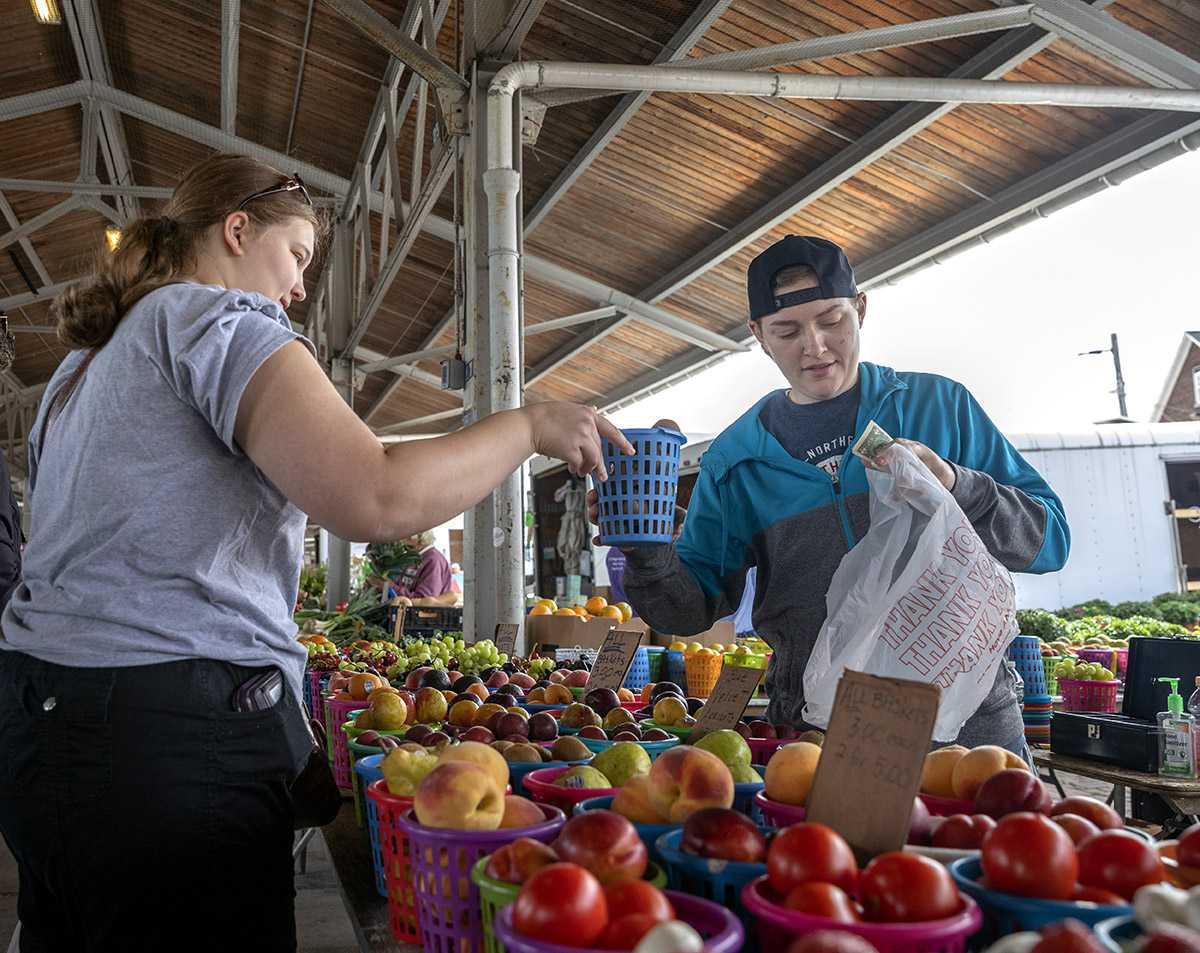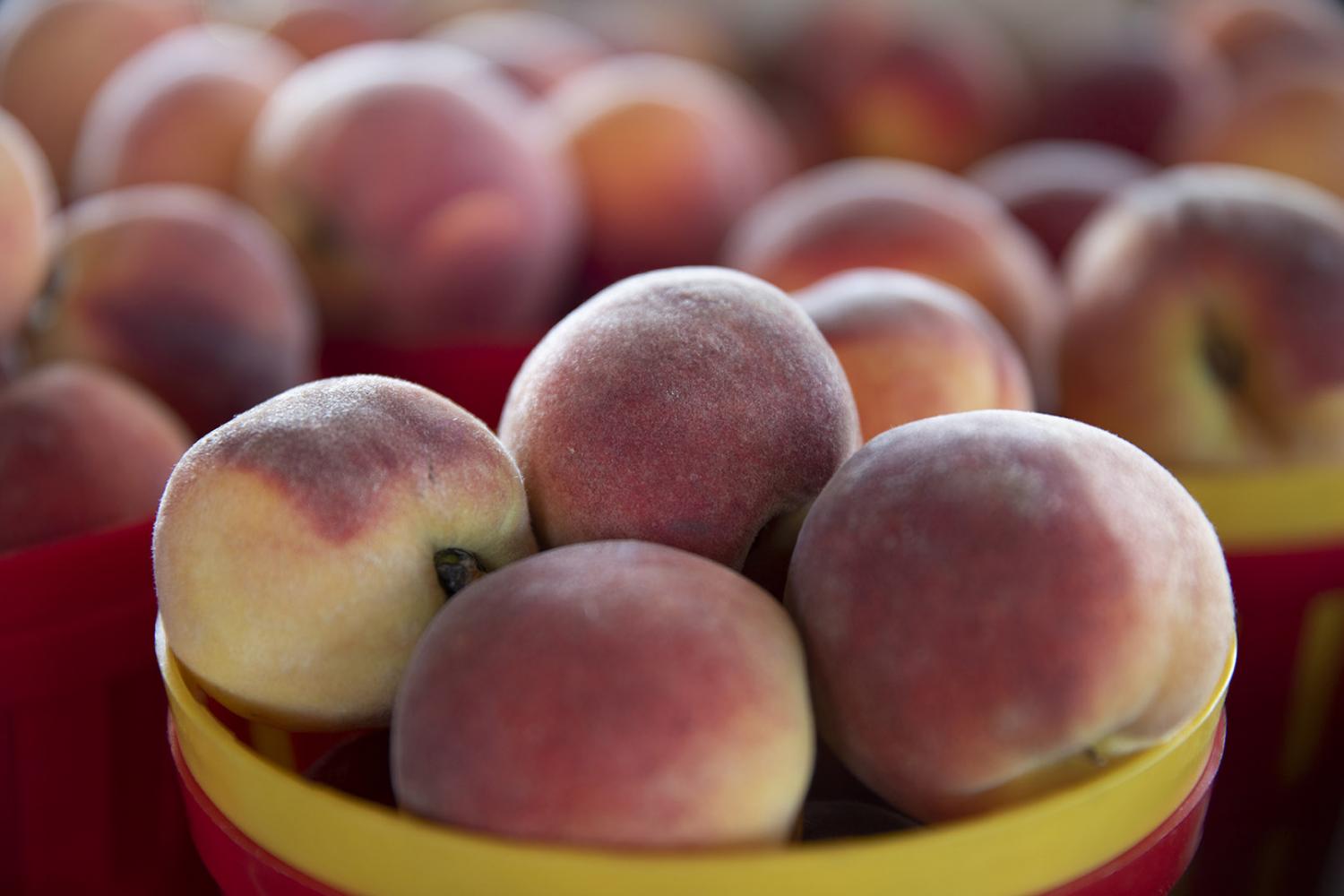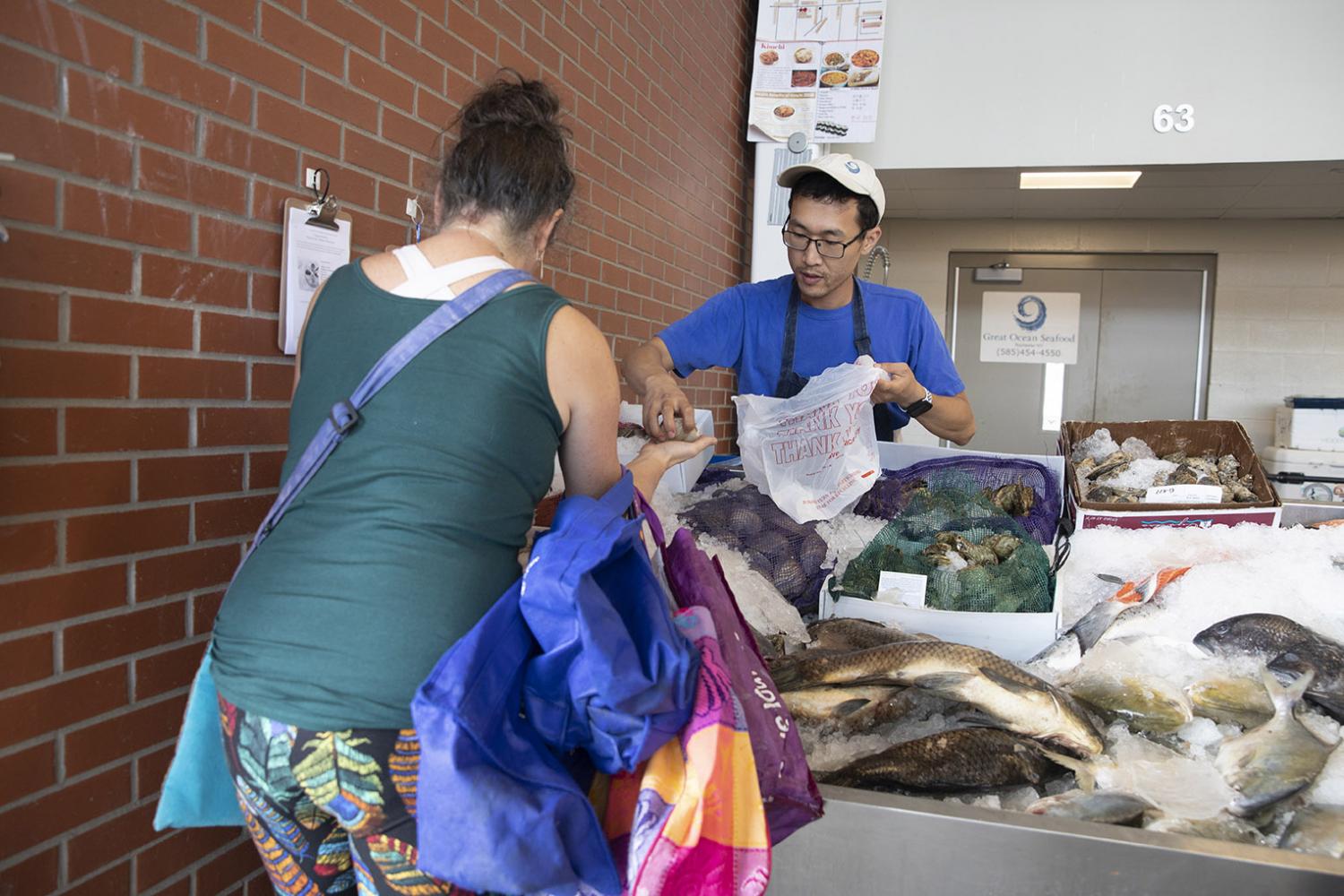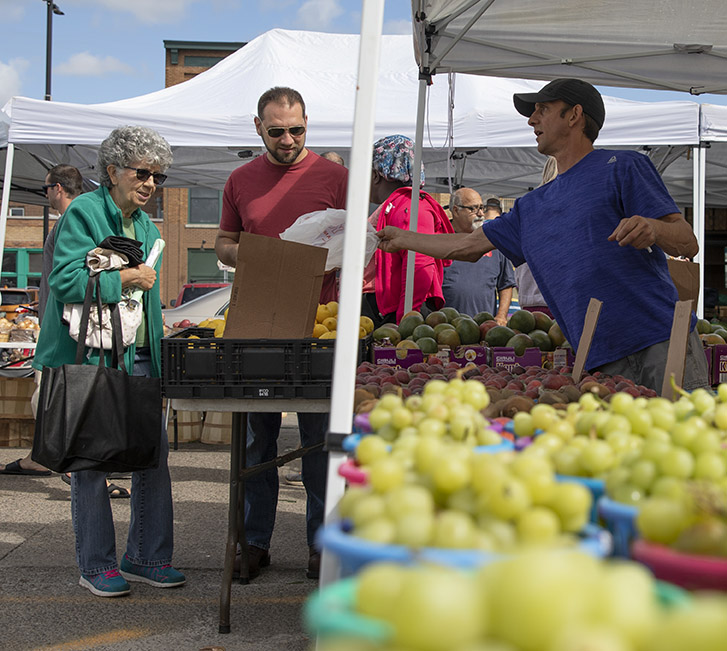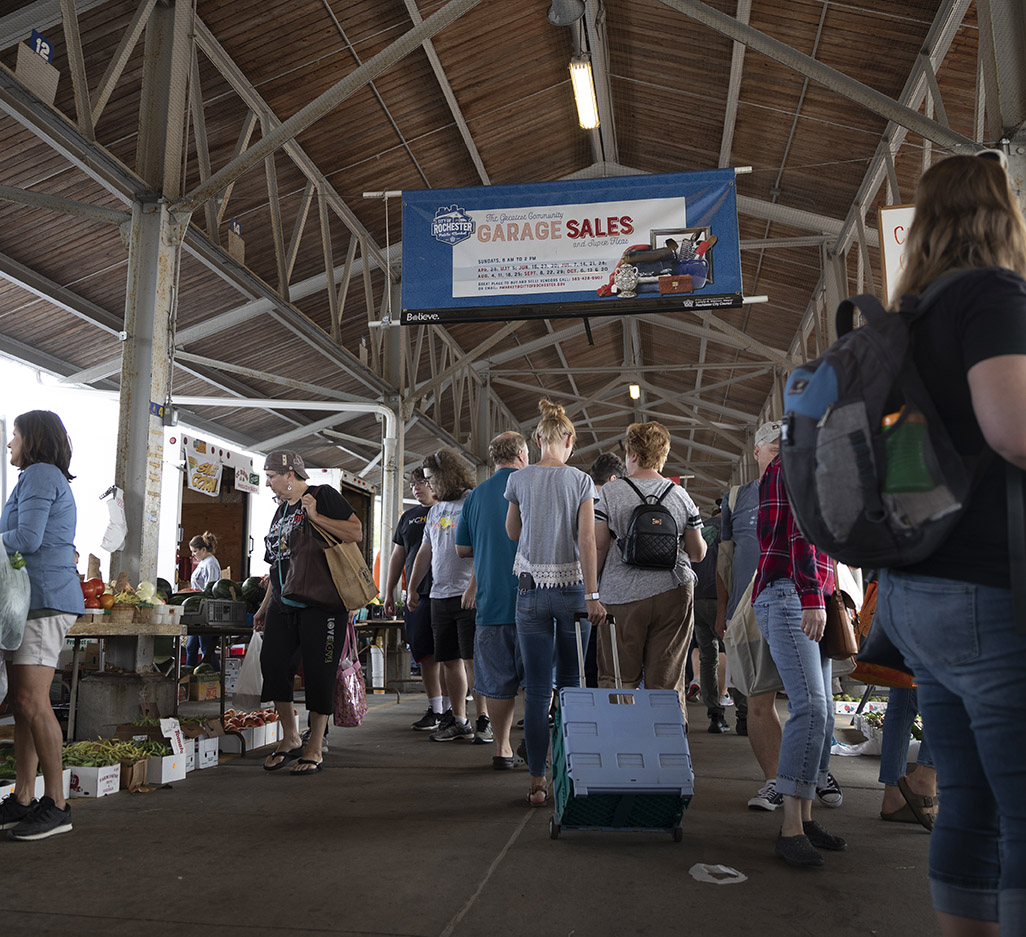You can imagine it as a roofless Wegmans. In a setting stripped of linoleum and overhead lighting, the usual search for produce is transformed into something more intimate. Lettuce isn’t picked from a display and placed in a shopping cart; it's handed over by the person who grew it. A week later, while making Caesar salad, one might still remember how green the farmer’s eyes were. Giving a face to your weekly purchase of avocados isn’t entirely the point — but, it is. Although brief, the in-person exchange has significant meanings.
Straight Outta the Soil
Freshness is the most notable quality of locally purchased produce. Farmer’s markets shorten the distance between the soil the food was grown in and the plate it eventually ends up on. This ensures that the ingredients for your next meal are more freshly harvested. Thomas Moss, a farmer of Moss Fresh Fruits and Vegetables, talked about the reliable freshness of produce at the farmer's market.
“Inspectors come out to the field and make sure we’re using the right chemicals [on our crops], make sure it's the right grade. Like after the market today, some of the things that we don’t sell today, we’ll go home and we’ll put it in the cooler and make sure it stays fresh. Tuesday when we come back, it [will be] just as good as it was today. Of course, if it's bad, we'll throw it away. We don't want to sell [anything] bad to our customers,” said Moss.
"A week later, one might still remember how green the farmer’s eyes were."
Ted Cooper of Kirby Farms highlighted that, along with regular inspections, crops are grown under “safe farming practices” to ensure that they are good for consumption.
Purchases made at a farmer’s market leave consumers with produce of equal, or sometimes better, quality compared to purchases at the grocery store. Locally grown foods can bypass the lengthy processing and transportation that imported foods in grocery stores often endure. Brenda Abu, assistant professor in the Wegmans School of Health and Nutrition, explained that such processes may lower the nutritional value of fresh produce.
“Sometimes if the foods are processed before being sold in the grocery shop — especially for fresh fruits and vegetables — you can easily lose some of the nutrients like vitamin C. [If] they are exposed to the sun, vitamin C can easily move out of the fruit or vegetable because they respond to heat ... ” said Abu.
Keeping in mind how a food’s nutritional value can be affected by different processes, consumers should ensure the produce they purchase is as fresh as possible.
Room in the Budget
Although nutrition influences food-purchasing habits, so does cost. Grocery stores are both convenient and financially accessible, making them more popular than farmer’s markets.
“The produce houses over here, they get their stuff from Canada, maybe. [The farmers] are competing with that all the time. Price-wise, they’re a lot cheaper. Canadian stuff is usually supported by the government [through] tax breaks ... ” said Cooper.
Despite having to compete with imported produce, local farmers are still able to offer amazingly low prices. Selling food close to where it is grown means that expensive overhead costs such as storage and transportation are cut out. For consumers, this means fresh foods at a cost that won’t break the budget.
With the rising cost of education, college students don’t have as much money to spend on healthy eating options or transportation to farmer’s markets. RIT occasionally offers a shuttle to the Public Market to help address this issue. Free buses into the city give students without access to transportation and students who are of lesser income the opportunity to shop for fresher, locally grown foods. In a small way, this works to address the issue of food insecurity commonly found within lower socioeconomic classes.
Getting Local
On top of helping shoppers keep money in their pockets, purchasing locally grown foods gives more income to a community’s residents. Abu highlighted that grocery stores often don’t “enrich the community” they are located in. Local farmers, on the other hand, spend their profit in the area, boosting the local economy. What results is a win-win situation.
Besides the economic boost for Rochester, shopping locally keeps farmers in business. Cooper, who has been farming and selling at the Public Market for over 30 years, shared that an important reason for consumers to shop at farmer’s markets is to “support local growers.” Moss seconded this.
“If you go to the store and buy it, it doesn’t make [any] sense for the farmers to go out and plant it. Support your local farmers. Keep the farming industry going, not just for this generation, but the next generation," said Moss, who is a second-generation farmer. "If everyone just goes to the store and buys, there’s no reason for the tractors, no reason for the field and the corn ... ”
"Keep the farming industry going, not just for this generation, but the next generation."
More Than Ingredients
Purchasing fresh, locally grown foods is just one step to creating a healthy diet. Abu offered plenty of advice on methods of food preparation that are nutritious and accessible to college students.
Use the freshest vegetables to make salads — it's quick and simple for those who have busy schedules. Once your vegetables start to become less fresh, use it to make a soup. With fruits, making smoothies is quick and nutritious; blenders allow you to break the fruit down into a tasty drink without adding heat, which would remove necessary nutrients. Another suggestion is to use fruits and vegetables in a stir fry. Abu elaborated on this.
"Adding oil to the stir fry is very important. Some of the fruits and vegetables have nutrients which we call fat-soluble vitamins. They are more soluble if there is a fat involved. So, a stir fry will help your vitamin A become more easily absorbed by your body,” she said.
For students whose circumstances make it difficult for them to access healthier foods, Abu suggests some RIT options such as looking out for Tiger’s Choice foods and getting involved in wellness activities on campus to keep your body active. The Student Dietetics Association is also open to students who are interested in learning how to eat healthier.
It isn’t as important to know the name of the person who raised your chicken as it is to maintain a healthy diet. Knowing your farmer is just a means to knowing your food and, in a larger picture, your connection to your community.




